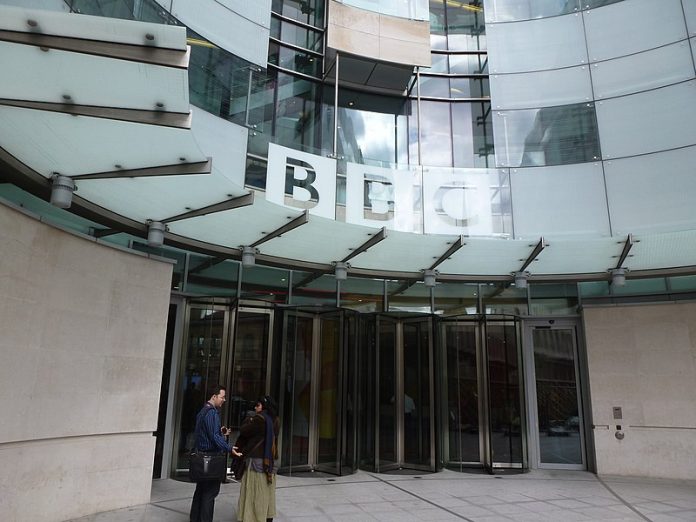Fight for a socialist working-class media
Josh Asker, Editor of the Socialist
The BBC’s mythical claim to ‘impartiality’ has only been further eroded by its reporting of the latest events in Israel-Palestine. For many of the hundreds of thousands marching in opposition to the war on Gaza and in support of Palestinian national self-determination, and millions watching on, it is held in distain. BBC HQ was daubed in red paint representing blood as a protest.
Millions more have other reasons for mistrust; including memories of its bias in backing up the capitalist class and its representatives in the Labour Party, the Blairites, relentlessly attacking and undermining Jeremy Corbyn.
However, millions also look at the platter of billionaire-backed broadcasters and print media, and choose to go to the BBC for news. Its authority has diminished from its peak, but its influence hasn’t gone.
Tory politicians
Despite a whole host of Tory politicians going back to Margaret Thatcher looking to weaken the BBC’s monopoly on broadcast media, opening up profitable markets for private outlets, it remains in existence. One major reason is that, for the ruling capitalist class as a whole, a state broadcaster continues to play a very useful role, supplementing the billionaire-owned media with a veneer of ‘impartiality’ and ‘balance’.
Israeli President Isaac Herzog complained to Rishi Sunak on his arrival in Israel that the BBC insists on always saying who or what is labelling Hamas as “terrorist”, the UK government for example – a policy that goes back decades and applies to many organisations beyond just Hamas. Six BBC presenters have been taken off air for alleged pro-Palestine tweets.
The BBC has received around 1,500 complaints about bias in its coverage of this war, reportedly distributed equally between supporters of the two national sides. It has defended its ‘impartiality’ by citing the breadth of different organisations whose views it has sought for comment. But almost every one is either a capitalist party or state institution, mostly from the West, or an NGO which sees its role as campaigning within the existing capitalist system. Where are the views of workers’ organisations?
What counts as a ‘balanced’ and ‘impartial’ position is under constant contending pressures. In this case from the Israeli state, different sections of British capitalist class and its state. Mass popular opinion, part-expressed by hundreds of thousands marching, exerts pressure too – this would be even more the case if there was a mass workers’ party supportive of the Palestinians’ cause and making the case for socialist change internationally.
Ultimately the British state broadcaster is a mouthpiece for the British capitalist state. The same is true of other capitalist state broadcasters; Al-Jazeera, Press TV and Russia Today all present an editorial line in accordance with the Qatari, Iranian and Russian states respectively.
Every time the BBC is seen to use its authority to put the bosses’ side in opposition to the workers’, trust is further diminished. In July this year, a YouGov poll found just 38% of people trust BBC journalists to tell the truth, down from 80% in 2003.
“Scrap the licence fee, they’re all liars”, one protester told me on a Gaza demo. The licence fee is a regressive flat-rate tax, it should be scrapped. A publicly owned broadcaster should be publicly funded through general taxation, not left in the hands of the establishment stooges currently at its head, and under the democratic control of the working class.
The current BBC Director General is an ex-Conservative Party council candidate, and the last BBC chair who resigned this summer had donated £400,000 to the Tories. The BBC’s governing board is appointed by the King’s Privy Council.
Democratic control
Democratic control of publicly owned media would mean elected representatives from the media trade unions and wider working class deciding on content and staffing, with political parties’ coverage allocated in proportion to the popular vote at elections, and guaranteed space for alternative views. Corporate media too should be taken out of the ownership and control of a small number of billionaires and be brought into democratic public ownership, as part of a programme of nationalisation of big business and the banks.
To aid in the building of a mass working-class movement which can achieve that and lead the struggle for socialist change, we need media and publications to put the workers’ case. And to not just report events but offer a way forward – the concrete next steps for working-class struggle. That’s why the Socialist Party produces the Socialist newspaper and our other publications; as a tool for our members and other workers in the struggle for a socialist world.








